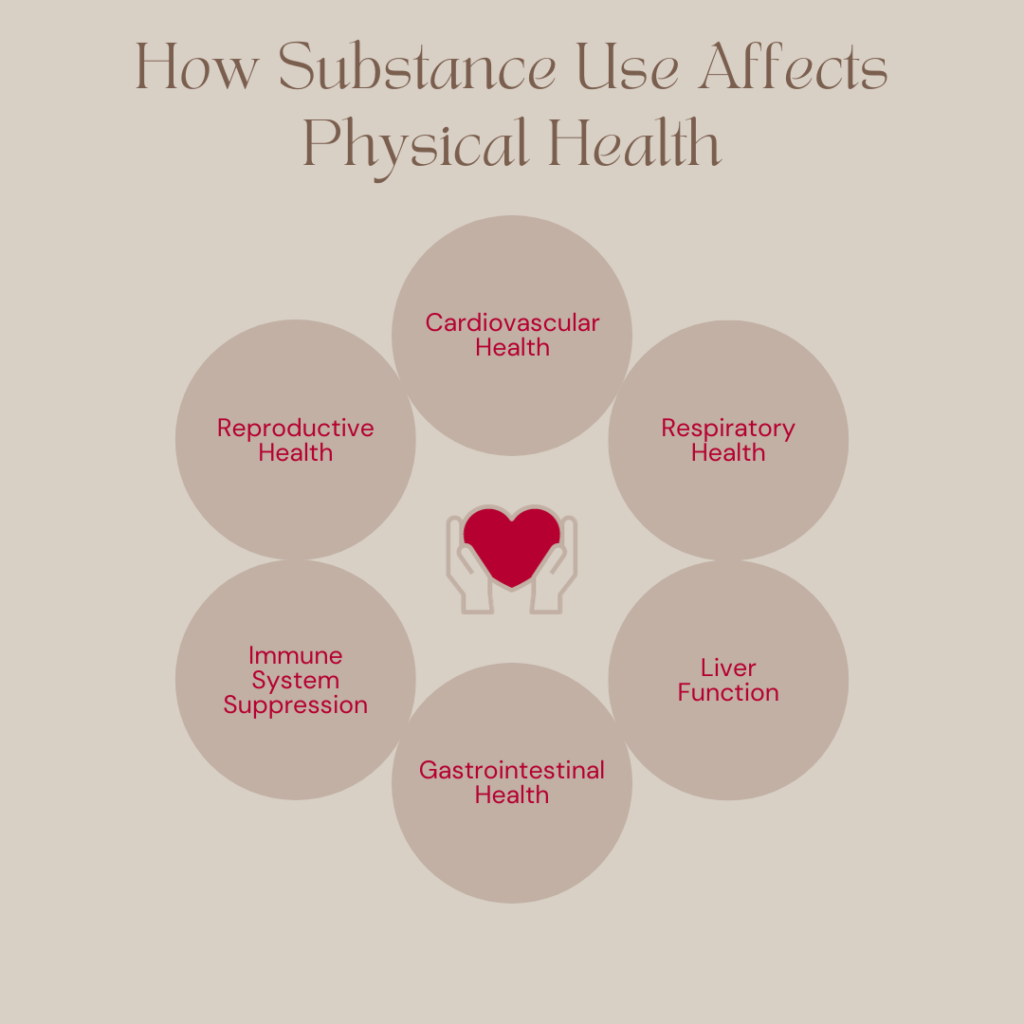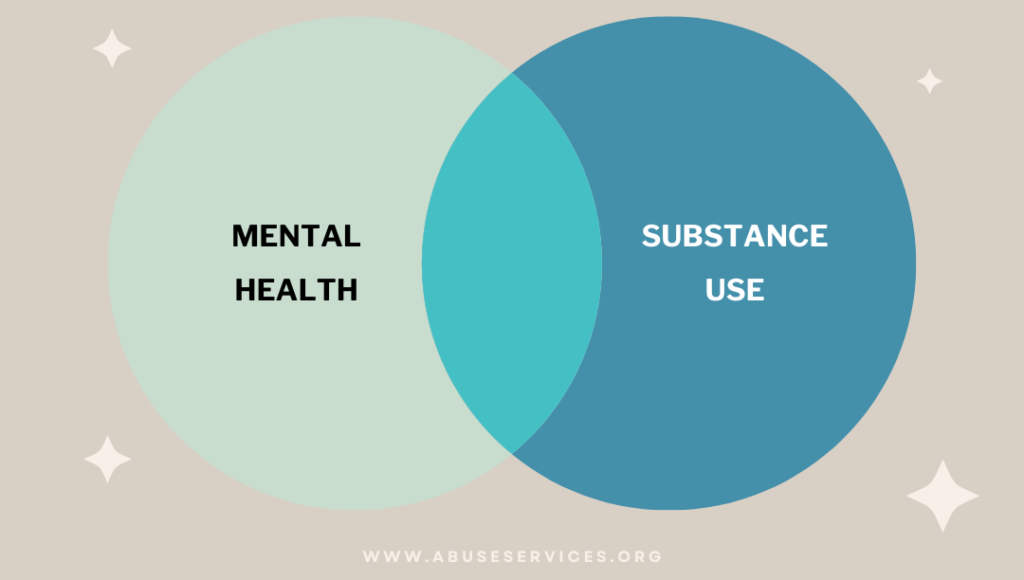Substance use has been a longstanding societal concern, with significant implications for public health. Beyond the well-documented social and psychological consequences, substance use takes a toll on physical health, often escaping the spotlight. In this blog post, we will explore the various ways in which the consumption of substances, including alcohol, tobacco, and illicit drugs, can impact physical well-being.

Cardiovascular System
One of the most profound and immediate effects of substance use is on the cardiovascular system. Tobacco, for instance, is a major contributor to heart disease, strokes, and other cardiovascular disorders. Nicotine, the addictive component in tobacco, constricts blood vessels, raises blood pressure, and increases the risk of blood clots. Similarly, stimulant drugs like cocaine and methamphetamine can lead to irregular heartbeats, heart attacks, and even sudden cardiac death.
Respiratory System
Smoking is not only a major risk factor for heart disease but also a leading cause of respiratory problems. Tobacco smoke damages the lungs, leading to chronic obstructive pulmonary disease (COPD), chronic bronchitis, and lung cancer. Inhaling substances, such as marijuana and cocaine, can also have detrimental effects on the respiratory system, impairing lung function and increasing the risk of infections.
Liver Function
Alcohol, when consumed excessively, can wreak havoc on the liver. Chronic alcohol use can lead to liver inflammation, fatty liver disease, alcoholic hepatitis, and cirrhosis. The liver plays a crucial role in detoxifying the body, and substance abuse places an enormous burden on this vital organ, potentially resulting in irreversible damage.
Gastrointestinal System
Substance use can have adverse effects on the gastrointestinal system. Alcohol, for instance, can irritate the stomach lining, leading to gastritis and increasing the risk of ulcers. Chronic alcohol use is also linked to an increased risk of gastrointestinal cancers. Other drugs, particularly opioids, can cause constipation and, in severe cases, contribute to bowel obstruction.
Immune System Suppression
Substance use can compromise the immune system, making individuals more susceptible to infections. Chronic alcohol consumption, for example, weakens the immune response, leaving the body vulnerable to illnesses ranging from respiratory infections to more severe conditions. Illicit drugs, such as heroin and methamphetamine, can also suppress the immune system, further exacerbating health risks.
Reproductive Health
Substance use can have detrimental effects on reproductive health. Alcohol consumption can lead to decreased testosterone levels, infertility, and erectile dysfunction. Substance use during pregnancy can result in a range of complications, including preterm birth, low birth weight, and developmental issues for the baby.
While the social and psychological consequences of substance use are well-known, the impact on physical health is equally significant. From the cardiovascular and respiratory systems to the liver, gastrointestinal tract, immune system, and reproductive health, no organ system remains untouched by the adverse effects of substance use. Recognizing these risks is essential for individuals, healthcare professionals, and policymakers alike to develop effective strategies for prevention, intervention, and treatment. It is only by understanding the multifaceted nature of substance use that we can work towards a healthier and more informed society.
Support our mission!





